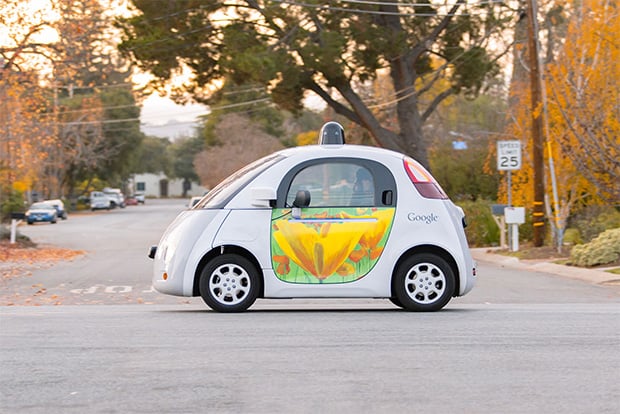Department of Transportation Pledges $4 Billion to Advance Autonomous Vehicle Development
It's an exciting time in the automobile industry with two technologies in particular dominating the news. One is the evolution of electric vehicles, with newer models going longer distances and offering sportier features than before, and the second is the emergence of self-driving cars, a vision that's shared by automakers and technology firms alike. You can also count the U.S. Department of Transportation among them, as it commits to investing billions of dollars in the autonomous vehicle category.
Over the next 10 years, the DOT will spend nearly $4 billion towards accelerating the "development and adoption of save vehicle automation through real-world pilot projects," DOT Secretary Anthony Foxx announced. Foxx also suggested that the DOT will remove "potential roadblocks" to integrating innovative technologies.

"We are on the cusp of a new era in automotive technology with enormous potential to save lives, reduce greenhouse gas emissions, and transform mobility for the American people," said Secretary Foxx. "Today’s actions and those we will pursue in the coming months will provide the foundation and the path forward for manufacturers, state officials, and consumers to use new technologies and achieve their full safety potential."
The general message is that the DOT is very much behind the autonomous vehicle movement and that it wants to help push it forwards, not stand in its way with a bunch of regulations. At the same time, the DOT won't go about this recklessly.
Just the opposite, the DOT has tasked the National Highway Traffic Safety Administration to work with industry partners over the next six months to develop guidelines on the safe deployment and operation of self-driving cars.
It will be interesting to see how that plays out. Just last month, Google said it was "gravely disappointed" with California's Department of Motor Vehicles for drafting a set of rules that would set several restrictions on self-driving cars. In particular, Google took issue with requiring a steering wheel and human driver to be present.
"In developing vehicles that can take anyone from A to B at the push of a button, we’re hoping to transform mobility for millions of people, whether by reducing the 94 percent of accidents caused by human error or bringing everyday destinations within reach of those who might otherwise be excluded by their inability to drive a car," Google spokesman Johnny Luu said in a statement.
Part of what the DOT wants to do is develop a nationwide policy, and presumably Google (and others) would have a voice in the rules and regulations that are to come.
Over the next 10 years, the DOT will spend nearly $4 billion towards accelerating the "development and adoption of save vehicle automation through real-world pilot projects," DOT Secretary Anthony Foxx announced. Foxx also suggested that the DOT will remove "potential roadblocks" to integrating innovative technologies.

"We are on the cusp of a new era in automotive technology with enormous potential to save lives, reduce greenhouse gas emissions, and transform mobility for the American people," said Secretary Foxx. "Today’s actions and those we will pursue in the coming months will provide the foundation and the path forward for manufacturers, state officials, and consumers to use new technologies and achieve their full safety potential."
The general message is that the DOT is very much behind the autonomous vehicle movement and that it wants to help push it forwards, not stand in its way with a bunch of regulations. At the same time, the DOT won't go about this recklessly.
Just the opposite, the DOT has tasked the National Highway Traffic Safety Administration to work with industry partners over the next six months to develop guidelines on the safe deployment and operation of self-driving cars.
It will be interesting to see how that plays out. Just last month, Google said it was "gravely disappointed" with California's Department of Motor Vehicles for drafting a set of rules that would set several restrictions on self-driving cars. In particular, Google took issue with requiring a steering wheel and human driver to be present.
"In developing vehicles that can take anyone from A to B at the push of a button, we’re hoping to transform mobility for millions of people, whether by reducing the 94 percent of accidents caused by human error or bringing everyday destinations within reach of those who might otherwise be excluded by their inability to drive a car," Google spokesman Johnny Luu said in a statement.
Part of what the DOT wants to do is develop a nationwide policy, and presumably Google (and others) would have a voice in the rules and regulations that are to come.

